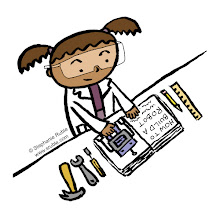You can learn a lot about writing from watching TV, especially The West Wing (one of my all time favorite TV shows).
If you take the politics out of the show, you can concentrate on the writing (some of you are probably saying that’s impossible; the whole show is about politics, but I assure you, it’s possible). Politics is only a backdrop, the premise behind the show, along with exploring who the players in Washington are, what the issues are, what it’s like to work at the White House. However, politics is not the main point of the show. Honestly.
The West Wing is really about the characters, who they are and how they interact with those around them. We care about the characters after the first show, and continue to care about them for several seasons. Plus there are a ton of major characters to care about. It’s not just one or two. Even the minor characters are important. Think about how you might pull off a novel with a huge ensemble cast, with many main players and several key secondary players. Could you do it?
How did they create such great characters and make us care about all of them? They did it by making the characters think, act and feel like real people, with great stories, real problems, and realistic dialog (and good actors too). We care about the characters because they’re flawed and because we get to see their good and bad sides. We get to see them on incredible highs and rock bottom lows; we see their whole range of emotions. There are no cookie cutter characters or continuously happy people on this show, and there shouldn’t be in your writing either.
The West Wing is not just about the characters; it’s also about the stories. Yes, many of them involve politics, but not always in the way that you’d think. In the very first episode, Sam, the Deputy White House Communications Director, accidentally sleeps with a call girl, which could be a political nightmare for the administration, not to mention embarrassing to him. (Sam met a cute girl at the bar and went home with her; he didn’t know she was a call girl, but that won’t matter in public opinion.) What actions might your characters take that could wreak havoc on the world around them? Do they do them on purpose? Or do they not realize what they’ve done until it’s too late?
The West Wing has excellent stories, sometimes several in one episode. Some of the stories carry over into following episodes and some of them wrap up in one show, but they manage to keep all the plots and subplots working at once.
If you’re writing series books, watching TV could be a really great way to see how to do single episode and longer story arcs at the same time, while keeping your readers interested in what’s going on at any given time. The West Wing is one of the best shows to study for this.
If you haven’t seen The West Wing, don’t take my word for it. Go rent the DVDs (or buy them if you have some $), or watch them on Bravo like I do. If you deconstruct the episodes, or even just watch them for entertainment, you’re bound to learn something about characters and stories and how to make them work.
If you have seen the show, think about this:
How many of you wish you could write a love story like the one between Josh and Donna? Or write the love story between Danny and C.J.? These start at the very beginning of the series and aren’t finished until the end of the show (it ran for 7 seasons and 156 episodes – that’s a long time to stretch out a romance and make people still care what happens).
* What about writing Charlie’s story? When his mom dies, he postpones college to take care of his little sister. He goes to the White House to get a job as a messenger and ends up being personal aide to the President. Then he dates the President’s daughter, which riles up the hate groups because Charlie’s black, the Zoey is white. The President and Josh get shot instead of Charlie when the hate groups target him. Later in the series, he was able to finish college and move into a new position as Deputy Special Assistant to the Chief of Staff.
How about Leo, the Chief of Staff? He’s a recovering alcoholic and drug addict who helps one of his friends get elected to the Presidency. Then his past drug addiction is made public knowledge, which puts that friend in political jeopardy. At the end of the series, Leo ends up running for VP with the next President.
Have a happy weekend everyone! Hope this gave you some food for thought or at least an excuse to watch more TV.
* One last thing, remember Charlie? Originally his character was only supposed to be on for a few episodes; he ended up being on all 7 seasons. It shows how a minor character in your story can end up taking on a more important role than you had originally envisioned.


I often watch shows and wish I could write like that...I tend to make my characters change too fast, so I love when they have a character do something you wouldn't expect them to do and I try to think back to see if there were any "hints" of the change...so I can work on bringing character change with the same slowness, so it is more unexpected...
ReplyDeleteMe too Brenda! I think that's why I try to figure out how they do it on TV.
ReplyDeleteI have not watched The West Wing, but I see what you are talking about through your examples. I think I need to go rent some DVDs:)
ReplyDeleteEnjoy the West Wing if you rent the DVDs Kim!
ReplyDelete